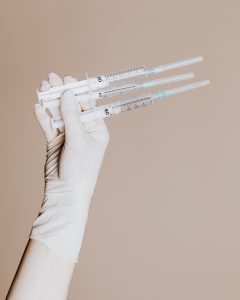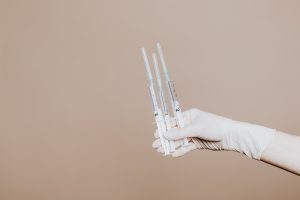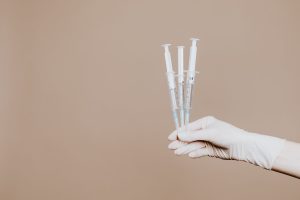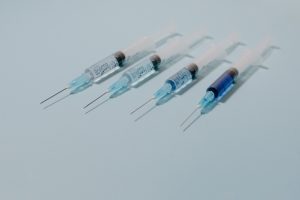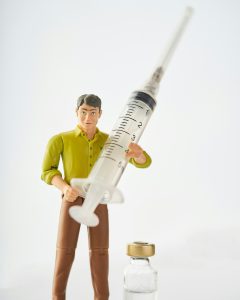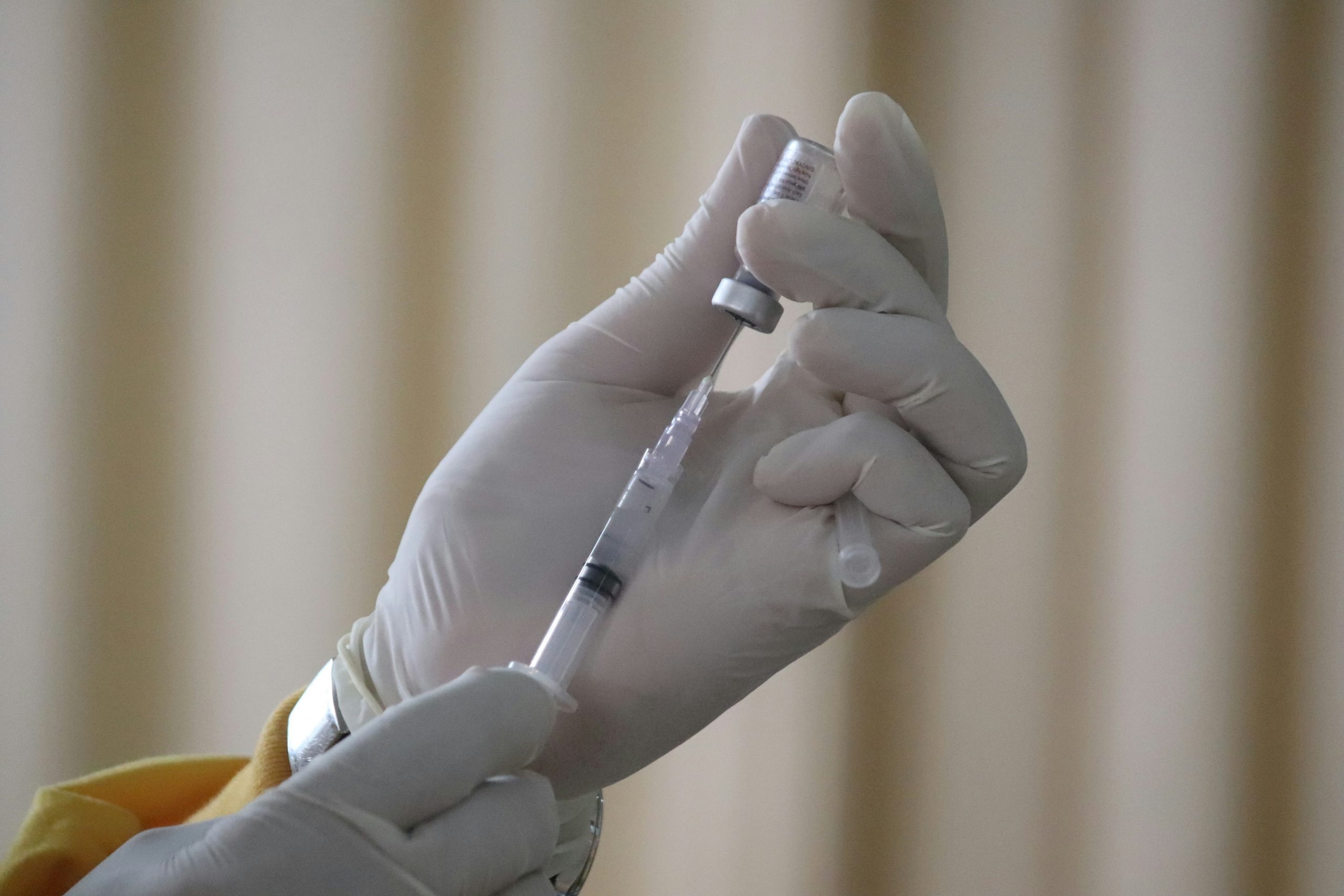
- What is Testosterone Enanthate?
- Brief History of Testosterone Enanthate
- How Does Testosterone Enanthate Work?
- What Are the Potential Benefits for Athletes?
- Are There Legal Implications for Athletes Using Testosterone Enanthate?
- What Are the Potential Side Effects of Testosterone Enanthate?
- Is Testosterone Enanthate Detectable in Drug Tests?
- Can Athletes Legally Use Testosterone Enanthate for Medical Reasons?
- How Is Testosterone Enanthate Administered?
- Is Testosterone Enanthate Addictive?
- Are There Alternatives to Testosterone Enanthate for Athletes?
What is Testosterone Enanthate?
Testosterone Enanthate is a synthetic form of testosterone, a crucial male sex hormone. As an injectable anabolic steroid, it is characterized by a slow-release ester, enanthate, which extends its activity in the body. Used primarily in medical settings, Testosterone Enanthate is prescribed to treat conditions associated with low testosterone levels, such as hypogonadism. In sports and bodybuilding, some individuals may misuse it to enhance muscle growth, strength, and performance, although this practice is associated with serious health risks.
The mechanism of Testosterone Enanthate involves mimicking the actions of endogenous testosterone. It binds to androgen receptors, stimulating protein synthesis and promoting the development and maintenance of male sexual characteristics. Athletes considering its use should be aware of potential side effects, including cardiovascular issues, hormonal imbalances, and liver damage. Moreover, the non-medical use of Testosterone Enanthate is illegal in many countries and violates anti-doping regulations in sports. Seeking guidance from healthcare professionals and adhering to legal and ethical standards is crucial for those considering its use.
Brief History of Testosterone Enanthate
Testosterone Enanthate, a synthetic form of the male sex hormone testosterone, has a history rooted in the development of anabolic steroids. The timeline of its history includes:
- Discovery of Testosterone:
- In 1935, German scientists Adolf Butenandt and Leopold Ruzicka isolated testosterone, laying the foundation for the subsequent creation of testosterone derivatives.
- Development of Testosterone Esters:
- In the 1930s and 1940s, researchers began modifying the testosterone molecule, leading to the creation of testosterone esters. Testosterone Enanthate is one such ester, characterized by the enanthate ester attached to the testosterone molecule.
- Medical Use:
- Testosterone Enanthate, like other testosterone esters, found applications in medical settings. It was prescribed to treat conditions associated with low testosterone levels, including hypogonadism.
- Anabolic Steroid Era:
- In the mid-20th century, the use of anabolic steroids, including Testosterone Enanthate, gained popularity outside of medical contexts. Athletes and bodybuilders began using these substances to enhance muscle growth and athletic performance.
- Sports and Doping:
- As concerns about the misuse of anabolic steroids in sports grew, anti-doping regulations were established. Testosterone and its derivatives, including Testosterone Enanthate, became substances of interest in drug testing protocols.
- Legal and Ethical Issues:
- The non-medical use of Testosterone Enanthate became a subject of legal and ethical scrutiny. Its association with potential health risks and its misuse for performance enhancement raised concerns in the medical and sports communities.
- Ongoing Concerns:
- Testosterone Enanthate remains a focus of anti-doping efforts, with strict regulations in place to detect its presence in athletes’ bodies. Education, testing, and penalties aim to deter athletes from using it for performance enhancement.
Throughout its history, Testosterone Enanthate has evolved from a medically prescribed treatment for hormonal deficiencies to a controversial substance associated with the ethics of fair competition in sports. Strict regulations and ongoing efforts seek to address the challenges posed by its misuse.
| Year/Period | Development |
|---|---|
| 1935 | Isolation of testosterone by German scientists Adolf Butenandt and Leopold Ruzicka. |
| 1930s-1940s | Modification of the testosterone molecule, leading to the creation of testosterone esters, including Testosterone Enanthate. |
| Medical Use | Testosterone Enanthate and similar esters utilized in medical settings to treat conditions such as hypogonadism. |
| Mid-20th Century | Anabolic steroid era emerges, with increased use of Testosterone Enanthate by athletes and bodybuilders for performance enhancement. |
| Sports and Doping | Growing concerns about the misuse of anabolic steroids in sports lead to the establishment of anti-doping regulations targeting substances like Testosterone Enanthate. |
| Legal and Ethical Issues | The non-medical use of Testosterone Enanthate becomes a subject of legal and ethical scrutiny due to its association with potential health risks and misuse for performance enhancement. |
| Ongoing Concerns | Testosterone Enanthate remains a focus of anti-doping efforts, with strict regulations in place to detect its presence in athletes’ bodies. Education, testing, and penalties aim to deter its misuse. |
This table provides a concise overview of the historical development of Testosterone Enanthate from its discovery to its medical use, the rise of anabolic steroids, and ongoing concerns in the context of sports and anti-doping efforts.
How Does Testosterone Enanthate Work?
Testosterone Enanthate works by mimicking the actions of endogenous testosterone, the primary male sex hormone. As an injectable anabolic steroid, Testosterone Enanthate has a slow-release ester, enanthate, attached to the testosterone molecule. Here’s a simplified explanation of how it works:
- Binding to Androgen Receptors:
- After administration, Testosterone Enanthate enters the bloodstream and binds to androgen receptors found in various tissues, including muscle cells.
- Activation of Androgen Receptors:
- The binding of Testosterone Enanthate to androgen receptors initiates a series of molecular events within the cells. This activation is crucial for the hormone’s anabolic (muscle-building) effects.
- Transcriptional Regulation:
- Testosterone, once bound to the androgen receptors, acts as a transcription factor. It regulates the transcription of specific genes, leading to the synthesis of proteins involved in muscle growth, protein synthesis, and various metabolic processes.
- Stimulation of Protein Synthesis:
- One of the primary effects of Testosterone Enanthate is an increase in protein synthesis. This is vital for the development and repair of muscle tissues, contributing to muscle growth and recovery.
- Nitrogen Retention:
- Testosterone promotes nitrogen retention in the muscles. Positive nitrogen balance is crucial for maintaining an anabolic environment, promoting muscle protein accretion.
- Enhanced Red Blood Cell Production:
- Testosterone, including Testosterone Enanthate, stimulates the production of red blood cells in the bone marrow. This contributes to improved oxygen-carrying capacity and endurance.
- Stimulation of Growth Hormone:
- Testosterone can stimulate the release of growth hormone, which further supports muscle growth and overall body composition.
- Feedback Loop Regulation:
- Testosterone, like endogenous testosterone, is subject to a feedback loop. Elevated levels of testosterone may signal the hypothalamus and pituitary gland to reduce the production of gonadotropins, regulating testosterone levels.
It’s important to note that the use of Testosterone Enanthate for non-medical purposes, such as athletic performance enhancement, is associated with significant risks and is generally considered unethical. Misuse of anabolic steroids can lead to serious health consequences, including cardiovascular issues, liver damage, hormonal imbalances, and psychological effects. Additionally, the non-medical use of Testosterone Enanthate is prohibited in many sports and can result in severe penalties for athletes.
What Are the Potential Benefits for Athletes?
Athletes may seek various potential benefits from the use of Testosterone Enanthate, a synthetic form of testosterone. It’s important to note that the non-medical use of this substance is associated with serious health risks and ethical concerns. Here are some of the perceived benefits that athletes may believe they can derive from Testosterone Enanthate:
- Increased Muscle Mass:
- Testosterone is an anabolic hormone that plays a crucial role in muscle protein synthesis. Athletes may believe that using Testosterone Enanthate can lead to an increase in muscle mass.
- Enhanced Strength:
- Anabolic steroids, including Testosterone Enanthate, are thought to contribute to increased strength, potentially allowing athletes to perform better in strength-based activities.
- Improved Recovery:
- Some athletes believe that Testosterone Enanthate can aid in quicker recovery from intense training sessions or injuries. This could potentially allow for more frequent and intense workouts.
- Enhanced Endurance:
- The increased production of red blood cells stimulated by testosterone and its derivatives may lead athletes to believe that Testosterone Enanthate can improve oxygen-carrying capacity, thereby enhancing endurance.
- Fat Loss:
- There is a perception that anabolic steroids may contribute to a reduction in body fat percentage, leading to improved body composition.
- Boosted Confidence and Aggressiveness:
- Testosterone is associated with psychological effects, including increased confidence and assertiveness. Some athletes may believe that these psychological changes could positively impact their performance.
- Quicker Rehabilitation:
- Athletes recovering from injuries might perceive Testosterone Enanthate as a means to expedite the rehabilitation process, facilitating a faster return to competitive sports.
It’s crucial to emphasize that these perceived benefits are based on misguided beliefs, and the non-medical use of Testosterone Enanthate can have severe health consequences. Additionally, the use of performance-enhancing substances without a valid medical prescription is prohibited in many sports, and athletes engaging in such practices may face serious penalties, including suspension and disqualification. Prioritizing legal and ethical means of improving athletic performance, such as proper training, nutrition, and recovery strategies, is essential for long-term health and fair competition.
Are There Legal Implications for Athletes Using Testosterone Enanthate?
There are legal implications for athletes using Testosterone Enanthate. The non-medical use of Testosterone Enanthate or any other anabolic steroid is generally considered illegal in many countries. Additionally, the use of such substances without a valid medical prescription is against anti-doping regulations in sports. Key legal implications include:
- Anti-Doping Violations:
- Athletes who test positive for Testosterone Enanthate or similar substances in anti-doping tests may face serious consequences, including suspension, fines, and disqualification from competitions.
- Legal Consequences:
- The non-medical use of Testosterone Enanthate may have legal consequences, as it is often classified as a controlled substance. Athletes caught using or possessing these substances without a valid prescription may face legal penalties, including fines and potential criminal charges.
- Loss of Titles and Medals:
- Athletes found guilty of anti-doping violations may face the retroactive stripping of titles, medals, and achievements earned during the period of the violation.
- Damage to Reputation:
- Legal implications extend beyond official penalties. Athletes may suffer damage to their reputation and public image due to negative media coverage and public scrutiny associated with doping allegations.
- Impact on Career:
- Doping violations can have long-lasting consequences on an athlete’s career. Suspension from competition and the associated negative publicity may hinder future opportunities in sports.
Athletes should be aware of and adhere to the anti-doping rules and regulations established by their respective sports organizations. The use of Testosterone Enanthate without a valid medical prescription for non-medical purposes is both ethically and legally questionable, and athletes engaging in such practices risk significant legal and career repercussions.
What Are the Potential Side Effects of Testosterone Enanthate?
The use of Testosterone Enanthate, like other anabolic steroids, can lead to various potential side effects. It’s important to note that these side effects can vary among individuals, and the severity may depend on factors such as dosage, duration of use, and individual response. Here are potential side effects associated with Testosterone Enanthate:
- Cardiovascular Issues:
- Elevated levels of testosterone, especially when used in excess, can contribute to cardiovascular problems such as high blood pressure and an increased risk of heart disease.
- Liver Damage:
- Prolonged or high-dose use of anabolic steroids, including Testosterone Enanthate, may potentially lead to liver damage. Regular monitoring of liver function is advisable during use.
- Hormonal Imbalances:
- Testosterone Enanthate use can disrupt the body’s natural hormone production, leading to hormonal imbalances. This can result in testicular atrophy, reduced sperm count, and infertility.
- Acne and Skin Issues:
- Increased levels of testosterone may stimulate sebum production, potentially leading to acne. Skin conditions such as oily skin and the development of skin lesions are possible.
- Mood Swings and Aggression:
- Anabolic steroids can affect mood, leading to mood swings and increased aggression. This psychological impact is commonly referred to as “roid rage.”
- Gynecomastia (Breast Tissue Growth):
- Testosterone can be converted into estrogen, leading to an imbalance and the development of gynecomastia, which is the growth of breast tissue in males.
- Water Retention:
- Testosterone may cause water retention, leading to bloating and an increase in body weight.
- Hair Loss:
- Individuals with a genetic predisposition to male pattern baldness may experience accelerated hair loss with the use of testosterone and other androgens.
- Sleep Disturbances:
- Some users report sleep disturbances, including insomnia or changes in sleep patterns.
- Aggravation of Existing Medical Conditions:
- Testosterone Enanthate use may exacerbate pre-existing medical conditions, such as prostate enlargement or cancer.
It’s crucial to emphasize that the non-medical use of Testosterone Enanthate for performance enhancement is associated with serious health risks. Athletes considering the use of such substances should consult with healthcare professionals to fully understand the potential side effects and make informed decisions about their health and well-being. Additionally, the use of anabolic steroids without a valid medical prescription is against the law in many jurisdictions.
Is Testosterone Enanthate Detectable in Drug Tests?
Yes, Testosterone Enanthate is detectable in drug tests. Anti-doping agencies, sports organizations, and other testing bodies implement drug testing protocols to identify the presence of prohibited substances, including anabolic steroids like Testosterone Enanthate, in athletes’ bodies.
Detection methods primarily involve analyzing urine or blood samples for traces of the substance or its metabolites. The detection window can vary based on factors such as the specific test used, the dosage and duration of use, and individual variations in metabolism. Athletes can be subjected to random or scheduled drug testing to ensure compliance with anti-doping regulations.
It’s essential for athletes to be aware that using Testosterone Enanthate without a legitimate medical prescription is a violation of anti-doping rules, and testing positive for the substance can result in severe consequences, including suspension, fines, and disqualification from competitions. Athletes are responsible for the substances they put into their bodies, and education about anti-doping regulations is crucial to maintaining fair play and integrity in sports.
Can Athletes Legally Use Testosterone Enanthate for Medical Reasons?
Athletes may legally use Testosterone Enanthate for medical reasons under certain conditions. Testosterone replacement therapy (TRT) is a medical treatment prescribed to individuals with clinically diagnosed hypogonadism or other conditions leading to abnormally low testosterone levels.
In cases where a qualified healthcare professional diagnoses a legitimate medical need for testosterone replacement, athletes may be granted a therapeutic use exemption (TUE) to use Testosterone Enanthate or other forms of testosterone. A TUE is a permission granted by anti-doping authorities that allows athletes to use a prohibited substance for genuine medical reasons without facing penalties for violating anti-doping regulations.
It’s important to note that the process for obtaining a TUE is stringent, and athletes must provide comprehensive medical documentation supporting the diagnosis and treatment plan. Additionally, the use of testosterone replacement therapy is closely monitored to ensure that athletes do not exceed prescribed dosages and maintain therapeutic levels within acceptable ranges.
Athletes should work closely with their healthcare providers and follow the established procedures to obtain a TUE if needed. The non-medical use of Testosterone Enanthate or any other anabolic steroid is strictly prohibited in sports and can result in severe penalties, including suspension and disqualification.
How Is Testosterone Enanthate Administered?
Testosterone Enanthate is typically administered through intramuscular injections. These injections involve injecting the substance directly into a muscle, usually in the buttocks, thigh, or upper arm. The choice of injection site and technique may vary depending on the preferences of the healthcare professional administering the injection and the individual receiving the treatment.
The frequency of Testosterone Enanthate injections can also vary. Due to its relatively long half-life compared to other forms of testosterone, Testosterone Enanthate injections are often given less frequently than shorter-acting esters. Common dosing schedules include injections every one to two weeks to maintain stable testosterone levels.
It’s crucial for individuals receiving Testosterone Enanthate injections to follow the prescribed dosage and administration schedule provided by their healthcare provider. This helps ensure the effectiveness of the treatment while minimizing the risk of side effects and complications associated with improper use.
As with any medical procedure, individuals should receive injections from qualified healthcare professionals to ensure proper administration and minimize the risk of infection or other complications. Regular monitoring by healthcare providers is essential to assess the individual’s response to the treatment and make any necessary adjustments to the dosage or administration schedule.
Is Testosterone Enanthate Addictive?
No, Testosterone Enanthate is not considered physically addictive in the same way substances like opioids or certain stimulants can be. However, there can be psychological dependence associated with the use of anabolic steroids, including Testosterone Enanthate.
Individuals who misuse anabolic steroids for performance enhancement or bodybuilding purposes may develop a psychological reliance on the perceived benefits, such as increased muscle mass and athletic performance. This dependence can lead to a cycle of continued use despite potential health risks.
It’s important to note that the non-medical use of Testosterone Enanthate and other anabolic steroids is associated with serious health consequences, including cardiovascular issues, liver damage, hormonal imbalances, and psychological effects. Additionally, the use of these substances without a valid medical prescription is against the law in many jurisdictions and violates anti-doping regulations in sports.
Athletes and individuals considering the use of Testosterone Enanthate or similar substances should prioritize their health and well-being, seek guidance from healthcare professionals, and adhere to legal and ethical standards in their respective fields.
Are There Alternatives to Testosterone Enanthate for Athletes?
Yes, athletes have legal and ethical alternatives to Testosterone Enanthate for enhancing performance. These alternatives focus on natural and sustainable methods to improve athletic abilities, promote recovery, and support overall well-being. Here are some alternatives:
- Proper Training Programs:
- Implementing well-structured training programs designed by certified coaches can optimize athletic performance. Targeted workouts, strength training, and skill-specific exercises can enhance strength, endurance, and agility.
- Nutritional Strategies:
- Proper nutrition is crucial for athletes. A well-balanced diet that meets individual needs provides essential nutrients for energy, recovery, and overall health. Consulting with a nutritionist can help athletes optimize their dietary plans.
- Supplements:
- Legal and safe supplements, such as vitamins, minerals, and amino acids, can support athletic performance. However, athletes should be cautious and ensure the supplements they use comply with anti-doping regulations.
- Adequate Rest and Recovery:
- Prioritizing sleep and allowing for sufficient recovery time between intense training sessions are essential for performance enhancement. Quality rest contributes to muscle repair and overall well-being.
- Mental Training:
- Mental resilience and focus are critical for athletes. Incorporating mental training techniques, such as visualization and mindfulness, can enhance concentration and performance.
- Legal Performance-Enhancing Aids:
- Athletes can explore legal aids like altitude training, compression garments, and advanced sports equipment, which may provide marginal performance benefits within ethical and legal boundaries.
- Regular Health Check-ups:
- Monitoring overall health through regular check-ups helps identify and address any underlying issues that may affect performance. This includes addressing vitamin deficiencies, hormonal imbalances, and ensuring general well-being.
- Biomechanical Analysis:
- Athletes can undergo biomechanical analysis to optimize their technique and movement patterns, potentially improving efficiency and reducing the risk of injuries.
It’s essential for athletes to prioritize legal and ethical means of performance enhancement, considering the potential consequences associated with the misuse of substances like Testosterone Enanthate. Seeking guidance from coaches, sports professionals, and healthcare experts can contribute to a comprehensive and sustainable approach to athletic development.


